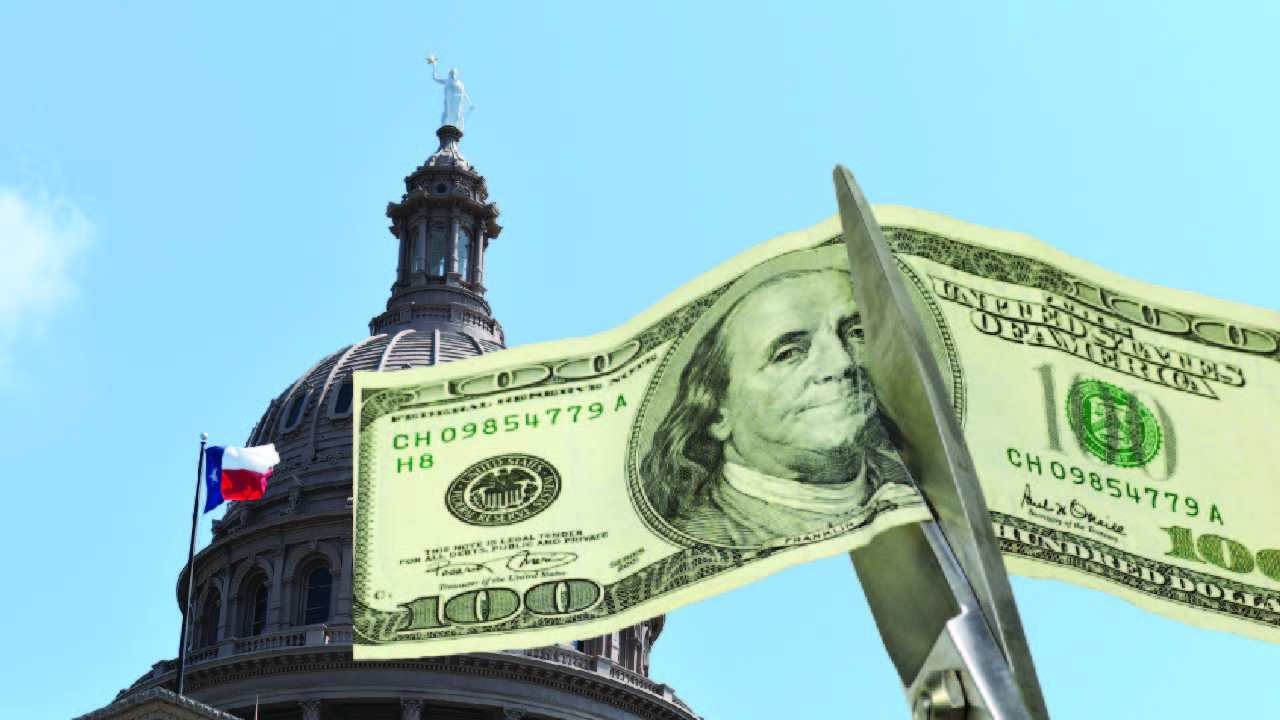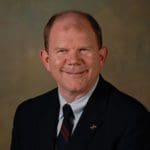Every two years, thousands of lobbyists, industry reps, mayors, county commissioners, and other descend into the state Capitol building in Austin when the Texas Legislature convenes.
And they all want one thing: your money. Unfortunately, for the most part, lawmakers are happy to provide it to them.
The thing is, they don’t really want you to know what they are up to. Taxpayers tend to get a bit worked up when they hear that big business and big government is making off with their cash. So legislators and state leaders have developed a number of ways to hide what they are doing from the public—at least until no one is paying attention.
This is particularly the case when policymakers are facing a budget shortfall like the one Texas will likely face in 2021 because of the COVID lockdown and collapse of oil and gas prices. Here are some examples of budget gimmicks designed to keep voters in the dark.
Cutting property taxes
Everyone hates property taxes. Well, except for local governments. Nonetheless, pushing for property tax cuts always makes for a good sound bite. But to date, the results of efforts to cut property taxes in 1997, 2007, 2015, and 2019 have actually been higher property taxes and higher state spending—just ask residents in cities like Austin that are trying to jack up property taxes post-COVID-19 panic. The effort in 2006 is another example. The Legislature increased business taxes to pay for more spending on education. But they told citizens not to worry, that the higher state spending would reduce local property taxes. Except it didn’t. Property taxes declined only a few hundred million in 2007 but then jumped by almost $5 billion during the next two years. And on top of that, taxpayers had to foot the bill for an additional $14 billion of spending on public schools, although nobody knew this for a couple of years.
Playing bait and switch with federal funds
Back in 2009, Texas was facing a significant state revenue shortfall because of the great recession. At first blush, it looked like legislators acted responsibly by keeping spending of state funds flat. But they did not do this by trimming spending. Instead, they actually increased overall spending by 8 percent. How did they do that? Easy. They took a bunch of federal stimulus money and increased spending of federal funds by almost 30 percent. It looked great on paper until 2011, when the federal funds dried up.
Deferring payments to school districts
In 2011, Texas budget writers had to figure out how to deal with the $10 billion-plus budget shortfall they had created in 2009. One way they managed it was by deferring payments to school districts. The last payment the state makes to school districts each year is made in August, the last month of the state’s fiscal year. To “balance” the state budget, legislators pushed a $2.3 billion payment from August 2013 to September 2013, into the next biennium. This did not save money. In fact, it made the situation worse, creating a $4.6 billion obligation for the next Legislature. But, what the heck. They did not have to worry about that for two years.
Underfunding Medicaid
The biggest unknown in each budget cycle is how much the federal government is going to force Texas to spend on Medicaid. Sometimes, however, that plays right into the hands of budget writers. The 2011 session’s $10 billion budget crunch required multiple gimmicks if legislators were going to avoid the unthinkable—trimming spending. This one was relatively easy. They underfunded Medicaid spending by about $3.9 billion, just pretending the spending did not exist. But it did.
Speeding up tax collections
Just like delaying payments, sometimes legislators try to work their way out of a budget hole by speeding up the collection of taxes from businesses. In the case of 2011, the Legislature sped up the collection of both motor fuels and alcohol taxes, pocketing about $84 million. Then they picked up another $403 million by delaying transfer of the motor fuels tax.
No new taxes!
I am sure you have heard that one before. A number of times—including 2003 and 2011—politicians said they were going to balance the budget without new taxes. But they did not say anything about new fees or penalties. It is not a budget gimmick per se, because the revenue is real. But it is a political gimmick designed to hide that citizens are paying more money to the government at the same time the economy is hurting.
Using budget speak
When they are flush with cash, policymakers usually do not use budget gimmicks to hide their spending simply because they do not have to. Still, this leaves them in the uncomfortable position of having to defend their big spending ways to voters. This was the case after the most recent 2019 regular session of the Texas Legislature. In 2019, the Texas Legislature appropriated $248.3 billion for the current biennium, an increase of $31.7 billion, or a whopping 14.63 percent, over what it appropriated in 2017. However, the state’s numbers show that the budget increased by either 3.6, 1.5, or 2.7 percent. Take your pick. These are highly misleading numbers, but because they are based somewhat on reality they often get away with them—at least when it comes to the mainstream media.
Former Texas House Appropriations Chairman Talmadge Heflin and committee member Rep. Arlene Wohlgemuth once wrote that budget gimmicks eventually force policymakers to “confront and overcome the fiscal challenge that has been kicked down the road; and the longer the problem has been avoided, the tougher it will be to overcome.”
That is the situation Texas is facing in 2021. The unwillingness of Republicans and Democrats to control spending for decades, including their overspending in 2019, have put them in a bind for 2021. The only solution is for taxpayers to tell policymakers to stop spending growth.
A zero-growth budget, anyone?
This is a commentary republished with the author’s permission. If you wish to submit a commentary to Texas Scorecard, please submit your article to submission@texasscorecard.com.





